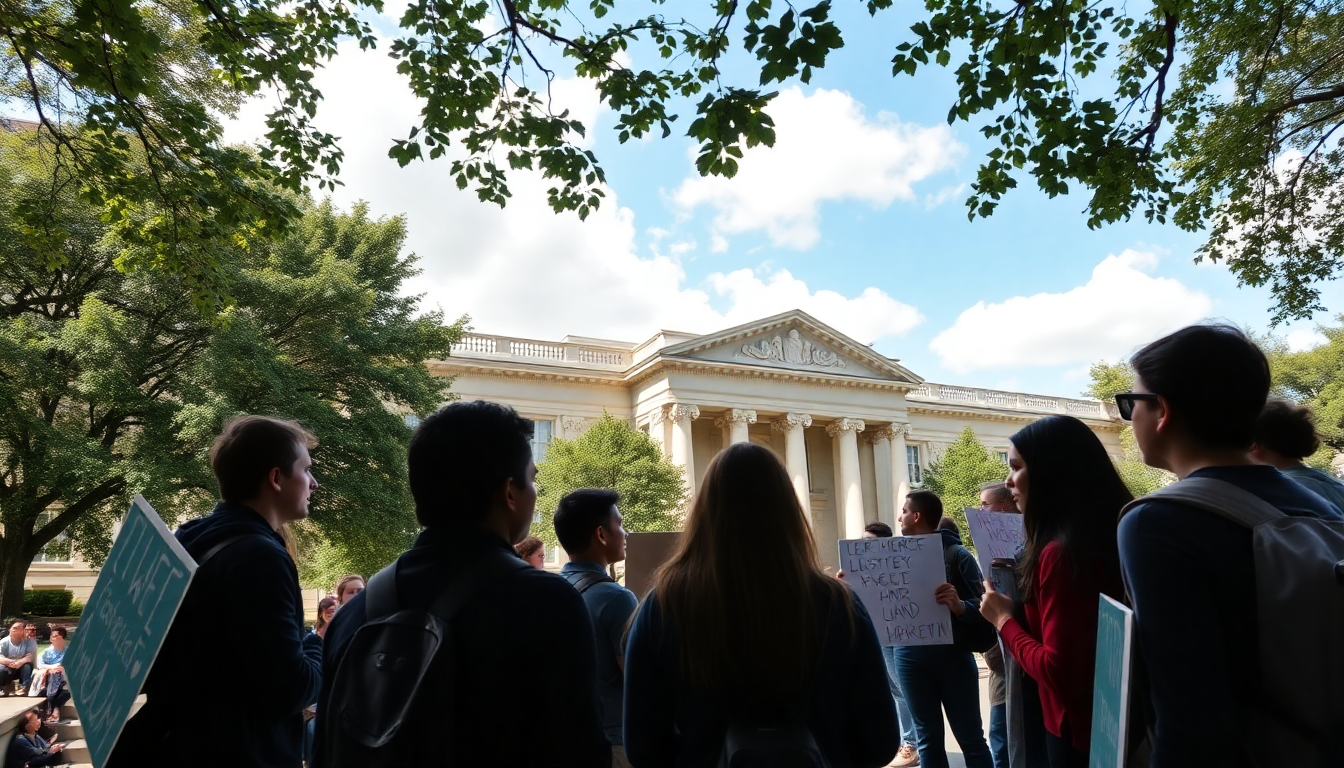Table of Contents
Columbia University is currently facing significant backlash after taking strict disciplinary measures against students who protested the ongoing conflict in Gaza. The school has enacted severe actions, including expulsions and even revoking degrees, claiming these were necessary due to disruptions in academic activities. This has ignited a passionate debate about the boundaries of academic freedom and the extent of student activism.
The Context of Student Activism
So, what sparked these drastic measures? It all began with a series of protests led by student groups, particularly Columbia University Apartheid Divest (CUAD), which calls for the university to cut financial ties with Israel. As these protests gained traction in 2024, students occupied various campus spots—including Butler Library—to express their solidarity with Palestinians in Gaza. This movement has resonated far beyond campus, contributing to a larger global conversation about the humanitarian crisis in the region.
Recently, CUAD reported that nearly 80 students have faced expulsion or suspension for their roles in these protests. This number highlights the university’s firm stance against what it views as violations of its academic disruption policies. The administration argues that these actions are necessary to maintain the integrity of the educational environment.
However, the student group argues that the university’s response is excessive. They claim that the harsh penalties for participating in teach-ins and peaceful protests are unprecedented, raising serious questions about the university’s commitment to free speech and the right to protest.
Consequences and Backlash
Columbia’s latest actions were triggered by incidents that disrupted academic activities during critical times, such as final exams. The university’s Judicial Board confirmed that it issued a final set of findings resulting in disciplinary actions that have left many students shocked. Notably, these decisions come amid ongoing discussions with the federal government regarding potential funding cuts, adding another layer of complexity to the situation.
In the midst of this turmoil, Columbia’s acting president, Claire Shipman, encountered public dissent during a graduation ceremony, underscoring the growing discontent among students regarding how the administration has handled the protests. Many students feel disenfranchised, viewing the university’s actions as punitive rather than protective of academic standards.
Moreover, the context of these protests is intensified by the dire humanitarian situation in Gaza, where reports of starvation and suffering have alarmed many. As the conflict persists, the tension between academic policies and global humanitarian concerns raises critical ethical questions for universities like Columbia.
Future Implications and Academic Freedom
As Columbia University navigates this challenging landscape, the consequences of its disciplinary measures extend beyond the campus. How the institution responds to student activism could set a precedent for how universities handle similar situations in the future. Striking a balance between maintaining academic order and protecting students’ rights to express dissent is a delicate task fraught with potential repercussions.
In the upcoming months, the university may need to reevaluate its policies and consider the broader implications of its actions on student engagement and activism. The ongoing dialogue about academic freedom, social justice, and institutional responsibility is likely to remain a hot topic within higher education.
Ultimately, the unfolding situation at Columbia University reflects larger societal debates about the role of educational institutions in promoting social change while ensuring academic integrity. As students continue to mobilize and voice their concerns, the university will be compelled to navigate these complex dynamics thoughtfully and carefully.


